Artists & Filmmakers
Artists & Filmmakers
Explore the work of artists and filmmakers featured in previous festival years.
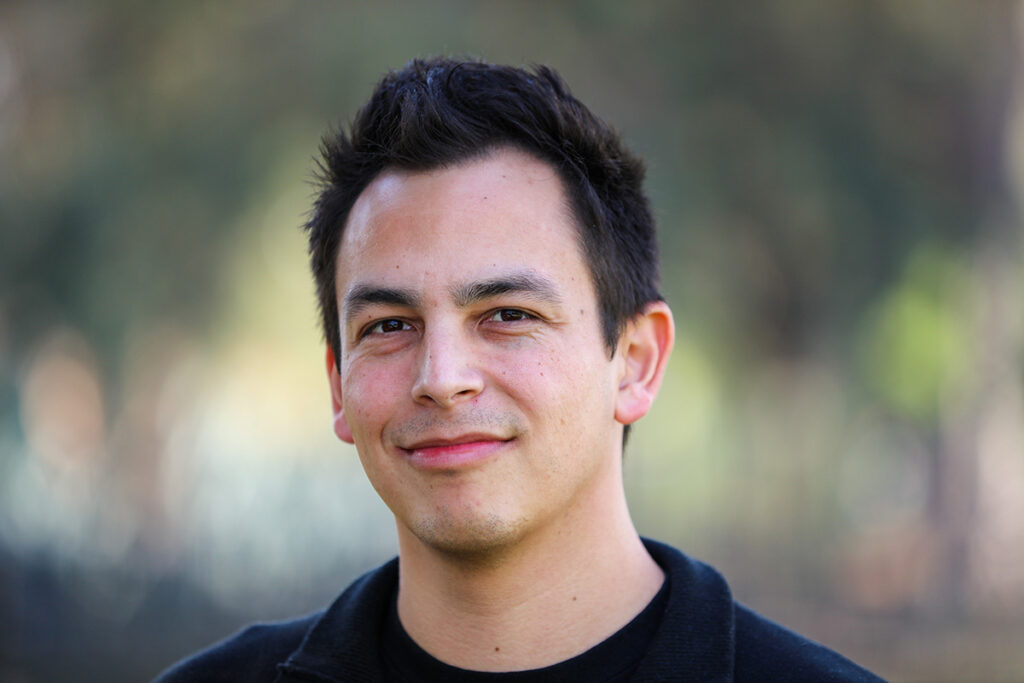
Adam Piron
Adam Piron (Kiowa Tribe of Oklahoma and Mohawk) is a Southern California-based filmmaker, writer, and curator. He is a co-founder of COUSIN: a film collective dedicated to supporting Indigenous artists experimenting with, and pushing the boundaries, of the moving image. His films have screened at the New York Film Festival, International Film Festival Rotterdam, MoMA Doc Fortnight, The Geffen Contemporary at MOCA, and various other festivals and programs.

Amie Barouh
Amie Barouh creates an experimental documentary giving voice to those at the margin of society. ‘Film diary’ provides the foundation for her work as does the idea that all knowledge is subjective. Driven more by affinity than dogma to ‘make a film’, the video of Barouh, between documentaries and visual essays, aims first to transmit an experience, lived as it is. The search of right proximity with those who she films gives constant tension to Barouh’s work. The camera, the third eye and arm of the artist, negotiates the nature of the relations in real-time that she, as a documentary artist but as a person before anything else, maintains with her subjects. Presentation and subjective editing espouse her heartbeat where impressionistic or realistic images originate, reconstructing the full complexity of documenting the world to which we do not belong.
Julie Akermann shortened and translated by the gallery Yamamoto Keiko Rochaix
Assia Djebar
Ayanna Dozier
Ayanna Dozier is a Brooklyn-based artist-writer working across film (both motion picture and still), performance, and installation. She recently completed her Ph.D. in the Department of Art History and Communication Studies at McGill University.
Her films have screened at film festivals across the United States and the United Kingdom which includes; Prismatic Ground (2022), Alchemy Film and Moving Image Festival (2021), Open City Docs (2020), and Aesthetica Film Festival where she was the recipient of Best Experimental in 2020 for her film Softer. Her work has been exhibited at Microscope Gallery, The Shed, Westbeth Gallery, Evening Hours, Anthology Film Archives, and the Block Museum amongst other places. She is the author of The Velvet Rope as part of the 33 1/3 music series for Bloomsbury Academic Press. She was a 2018-2019 Helena Rubinstein Fellow in Critical Studies at the Whitney Independent Studies Program, a Joan Tisch Teaching Fellow at the Whitney Museum of American Art from 2017-2022, a 2022 Winter Workspace Resident at Wave Hill, and a filmmaker in residence at MONO NO AWARE from 2019-2020. She is currently working on a manuscript on the life and art of abstract film and visual artist, Camille Billops.
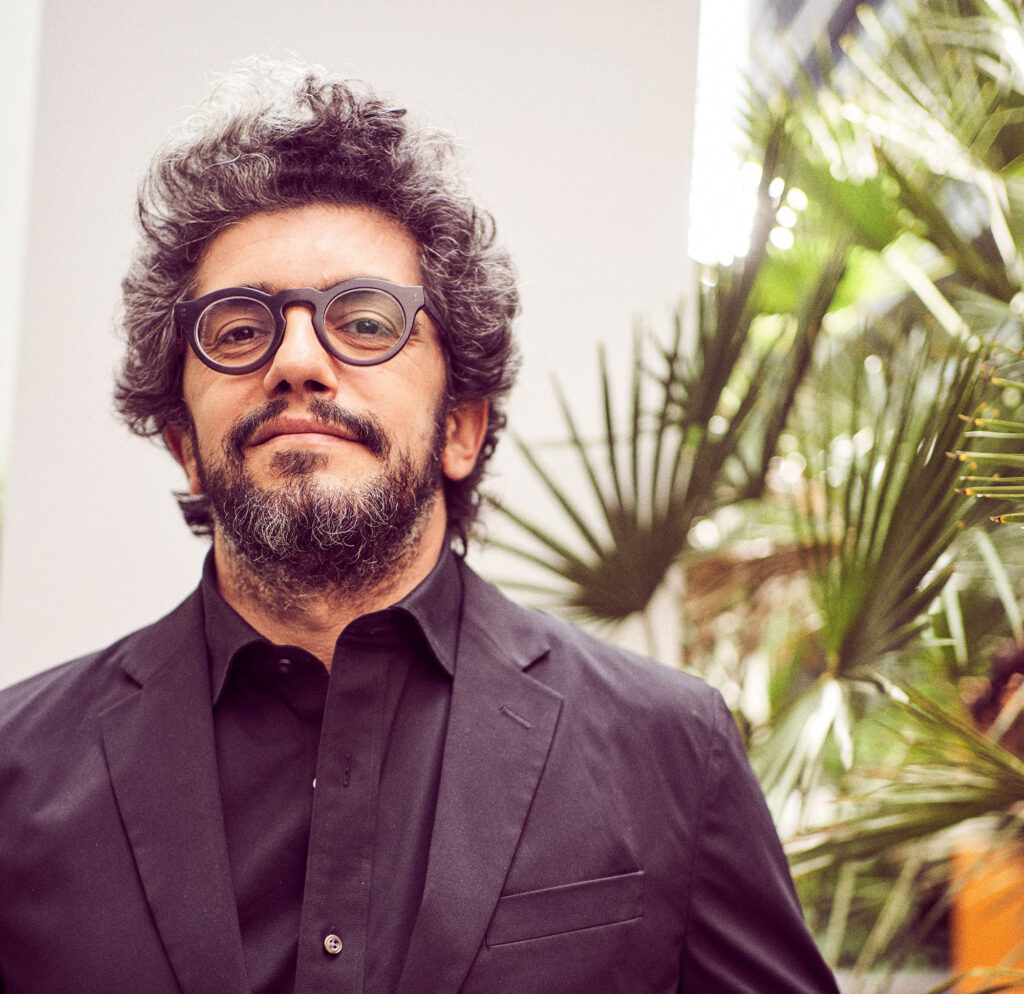
Basim Magdy
Basim Magdy is an artist and filmmaker born in Assiut, Egypt.
His work appeared recently in solo and group exhibitions at museums such as Frac Bretagne, Rennes; KM21 Museum for Contemporary Art, The Hague; M HKA, Museum of Contemporary Art, Antwerp; CAPC Museum of Contemporary Art, Bordeaux; MCA Museum of Contemporary Art, Chicago; MAXXI Museum of the 21st Century Arts, Rome; The Museum of Modern Art, New York and Centre Pompidou, Paris. His films are in museum collections including the Museum of Modern Art New York; Centre Pompidou, Paris; Solomon R. Guggenheim Museum, New York; Fondation Louis Vuitton, Paris, France FRAC Ile-de-France (le Plateau), Paris; MAXXI – Museo nazionale delle arti del XXI secolo, Rome; Sharjah Art Foundation, Sharjah; Arter, Istanbul and Mathaf: Museum of Modern Arab Art, Doha mong others.
His films were screened at Tate Modern, Locarno Film Festival, New York Film Festival, International Film Festival Rotterdam, Berwick Film & Media Arts Festival among others.

Camara Taylor
camara taylor is an artist and – – – based in Glasgow. They work with their various selves, collaborators and organisations to produce still and moving images, texts and public programmes.
Recent projects include [mouthfeel], Tramway, Glasgow (2024), backwash, Collective Gallery, Edinburgh (2022) ; a rant! a reel!, Cubitt Gallery, London (2021); holus-bolus, 17th Edinburgh Art Festival; IMG_5917 (2021), with Sulaïman Majali, commissioned by the Artists’ Moving Image Festival and suspiration! commissioned by The Newbridge Project, Gateshead, which was a recipient of a 2021 Berwick Film & Media Arts Festival New Cinema Award. Camara has undertaken residencies at organisations including Fonderie Darling (Montréal, 2023), Cove Park (Cove, 2021), Market Gallery (Glasgow, 2020) & National Theatre of Scotland (Glasgow, 2019). They have participated in programmes including Satellites (Collective Gallery, 2020-2022); Curatorial Directions (MAC Belfast, 2019) and Constellations (UP Projects/ FTHo, 2017-18). Camara was a Committee Member at Transmission Gallery from 2016 to 2018 and Programme Coordinator of the Race, Rights & Sovereignty series at The Glasgow School of Art from 2017 until 2021.

Celeste Rojas Mugica
Celeste Rojas Mugica (1987) is a Chilean-Argentinian visual artist and filmmaker with a Master Degree in Film Creation from Elías Querejeta Zine Eskola. She investigates the relations between memories, violence and territory working with images and archives in the borders of fiction and documentary. Her debut feature, “Una sombra oscilante” (An Oscillating Shadow) received the support of the Hubert Bals Fund, Audiovisual Fund (CL) and INCAA (AR). Her short films have been part of festivals such as Doclisboa, Ars Electronica, San Sebastian and FICUNAM.

Courtney Stephens
Courtney Stephens is a writer/director of four feature films and numerous shorts. Terra Femme, composed of amateur travel footage shot by women in the early 20th century, was a New York Times critic’s pick and has toured widely as a live performance. The American Sector (with Pacho Velez) follows slabs of the Berlin Wall installed around the US. John Lilly and the Earth Coincidence Control Office (with Michael Almereyda) explores the world of psychedelics pioneer John C. Lilly, and Invention, a semi-fiction feature about an obscure healing device, premiered at Locarno in 2024. Her films have been exhibited at MoMA, The National Gallery of Art, The Barbican, Istanbul Modern, Walker Art Center, Thailand Biennale, and film festivals including the Berlinale, Viennale, Rotterdam, Thessaloniki, IDFA, SXSW, Hong Kong, and the New York Film Festival. She is the recipient of a Guggenheim Fellowship, a Fulbright Scholarship, and grants from California Humanities, the Sloan Foundation, and the Foundation for Contemporary Art.
In addition to co-curating the miniature cinema Veggie Cloud since 2014, she has organized film screenings for The Getty, Flaherty NYC, Human Resources, and Museum of the Moving Image. Her writing has appeared in BOMB, Film Comment, Cabinet, Filmmaker, and The New Inquiry.

Cáit McClay
Cáit McClay and Éiméar McClay are Irish-born, collaborative artists currently based in London. Their recent work has analysed both the British Imperial project in Ireland and the period following the formation of the Irish Free State in 1922 to examine the cultural, political and economic effects of colonisation. This has involved a focus on the network of social institutions – Magdalene Laundries, mother and baby homes, etc. – run by the Catholic church and the state in Ireland across the 20th century.
Their work has been selected for many esteemed exhibitions and awards, including Circa Class of 2020; Bloomberg New Contemporaries 2020; TH4Y, GENERATORprojects; the 17th & 18th Berwick Film & Media Arts Festival New Cinema Award; the Hospitalfield Graduate Programme; the Market Gallery Studio Projects residency; the CCA Derry residency; Arts Council of Ireland Agility Award 2021 & 2022; RSA New Contemporaries 2022; the RSA Stuart Prize 2022; the 56th Karlovy Vary International Film Festival; Queer Lisboa; aemi@GAZE 2022; Bucharest International Experimental Film Festival; Festival du Nouveau Ciné; Intersección, MAV Award; the Beijing International Short Film Festival; the CCA Glasgow Creative Lab residency; Docs Ireland; Memoryhouse, Glebe House; the Creative Scotland Open Fund Award; SQIFF 2023; Other Worlds, Regional Cultural Centre, Letterkenny; zoombiblestudy, Galerie FaVU; the Visual Arts Bursary Award 2024; aemi @ Docs Ireland: Back Translation; A Mother’s Love, Prayer Room; SQIFF 2024; and Intersección 2024.
Dakei
Eri Makihara‘s work is based on experimental film and installation, and is created from the perspective of the biological body senses of people, primarily visual and sign language.
Her works takes different forms, such as screenings and performances, but the underlying concept is the “eloquence” of the human body and space, and the invisible oppression that exists behind it. By providing devices to visualise the phenomena produced by these works, Makihara continues to explore our commonalities and differences, and to attempt to bring to light the social structure of this world. Makihara co-directed the art documentary film LISTEN (2016) with DAKEI on the theme of Deaf people’s “music,” and The Tanaka Family (2021), they are producing a new commission for the Yebisu International Festival 2025.
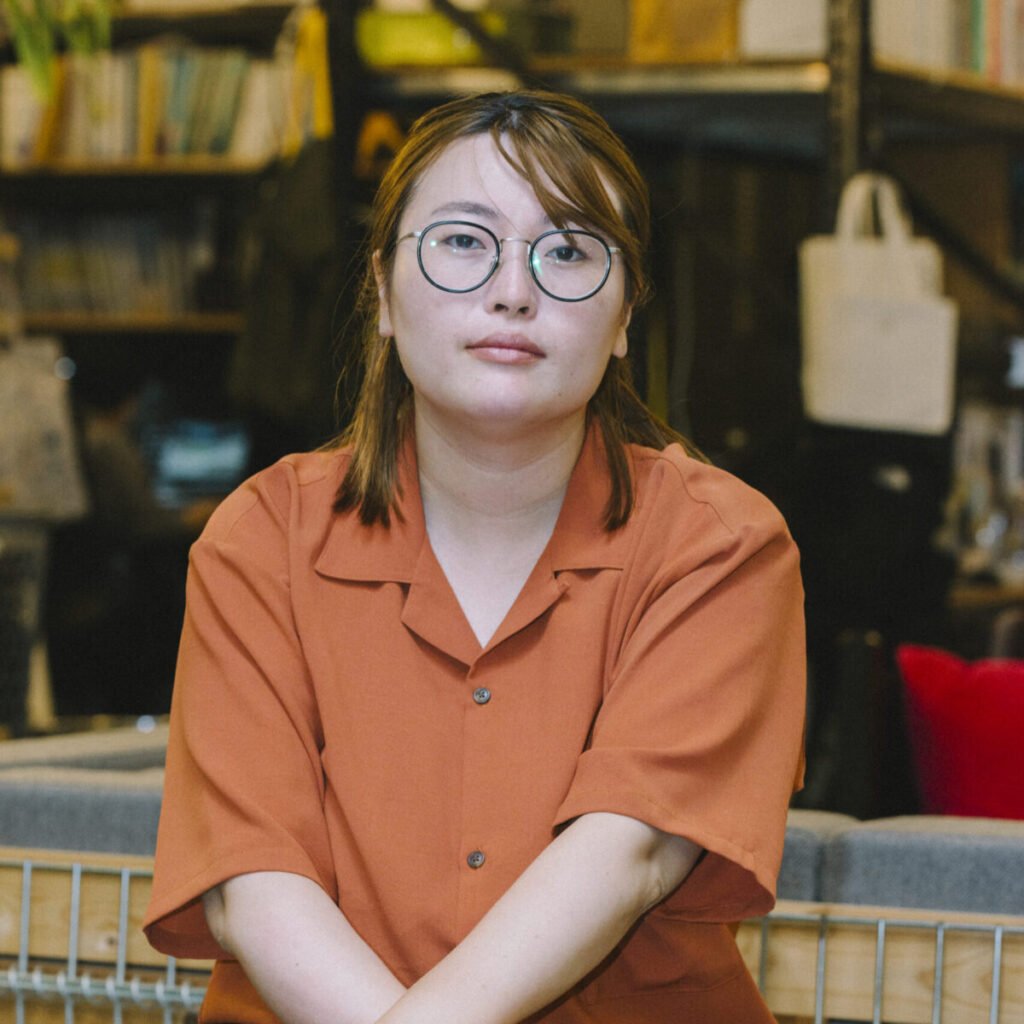
Eri Makihara
Eri Makihara‘s work is based on experimental film and installation, and is created from the perspective of the biological body senses of people, primarily visual and sign language.
Her works takes different forms, such as screenings and performances, but the underlying concept is the “eloquence” of the human body and space, and the invisible oppression that exists behind it. By providing devices to visualise the phenomena produced by these works, Makihara continues to explore our commonalities and differences, and to attempt to bring to light the social structure of this world. Makihara co-directed the art documentary film LISTEN (2016) with DAKEI on the theme of Deaf people’s “music,” and The Tanaka Family (2021), they are producing a new commission for the Yebisu International Festival 2025.
Fergus Carmichael
Harry Lawson
Harry Lawson (b. 1994) is an artist from Sunderland, UK.
He has made experimental moving image work across exhibition, installation and online formats since 2017. His work has been exhibited internationally, with recent shows at Chemist Gallery (London), Zumzeig (Barcelona) and Floating (Berlin).
He has been commissioned and supported by British Film Institute, Arts Council England, Wellcome Trust, Jupiter Woods, Block9 and The FA, amongst others.
His work has been shown on BBCOne, and featured in publications such as The Guardian, Huck, Plaster, Crack, Resident Advisor, Mixmag, Mundial, Copa90 and Hypebeast. His 2020 film, Meat Rack, was selected in The Observer’s Guide to Summer Culture.
In 2023, he exhibited Millwall On The Screen, a three-screen film about football and its role in the South East Bermondsey community- first as a site-specific installation at Wheel Shunters Social Club then as a solo show at Chemist Gallery in Lewisham. It ‘asked viewers to consider their own prejudices’ (The Guardian) and was described as ‘striking and unexpected’ (Huck Magazine).
Harry is currently developing Stepney Western, a participatory arts project centred on a film made in collaboration with a group of young inner city horse riders from Newcastle.
He continues to work as Director of Film and Photography at Identifying The Displaced (an interdisciplinary research project investigating the value of personal effects in the migration context)
Harry holds a BA in English Literature from King’s College London and a MA in Ethnographic Documentary Film from UCL.

Helena Wittmann
Helena Wittmann is an artist and filmmaker based in Hamburg, Germany. Her films, including her feature films HUMAN FLOWERS OF FLESH (2022) and DRIFT (2017) have been shown internationally at film festivals as well as in exhibitions and have received several awards. She has been teaching at Hamburg Academy of Fine Arts from and at Elias Querejeta Zine Eskola in San Sebastian, Spain. Besides her films she does installation works and collaborates as DoP with various directors and artists.

Hope Strickland
Hope Strickland is an artist-filmmaker and researcher from Manchester, UK with British-Jamaican heritage. Her work sits at the intersection of experimental film and documentary practices, moving across archival, analogue and digital formats in order to quietly sit across from and outside of time. Her practice wrestles with violence, disparate colonial landscapes and attempts to ask how we might live in a world and relate to one another with care whilst amongst and against systems of power and control.
Hope’s work has screened internationally at film festivals including the 59th New York Film Festival, BFI London Film Festival, Alchemy Film and Moving Image Festival, Scotland and Exis Experimental Film Festival, Seoul. She was awarded the 2023 Aesthetica Emerging Art Prize.

Inês Lima
Inês Lima (Setúbal) is an independent artist that explores the moving image, soundscapes, writing and film programming. She has been working the analog medium as an experimental vehicle in her work, intersecting personal themes with nature and ecology, traditions and memory, antagonisms and superstitions.
Her work has been shown at national and international film festivals, and exhibited in cultural venues such as the Cinemateca Portuguesa, MALBA Museum (Argentina) or the Tabakalera Cultural Center (Spain). She worked as a film programmer at the IndieLisboa International Film Festival between 2019 and 2022.

Isadora Neves Marques
Isadora Neves Marques (b. 1984, Lisbon) is a director, visual artist, and writer.
Her cinema releases include the short fiction films “Becoming Male in the Middle Ages”, which was awarded the Ammodo Tiger Short Award at its premiere in the IFFR – International Film Festival Rotterdam in 2022. Her films have been shown in festivals such as NYFF and TIFF, as well as in major art institutions like High Line, Reina Sofia, Castello di Rivoli, Pérez Art Museum of Miami, Tate Modern, and Palais de Tokyo. In 2022 she was the Portuguese Official Representation – Portugal Pavilion at La Biennale di Venezia. She was also awarded a Pinchuk Future Generation Art Special Prize and the Present Future Art Prize for her art career. She is co-founder of the film production company Foi Bonita a Festa and of the poetry press Pântano Books.
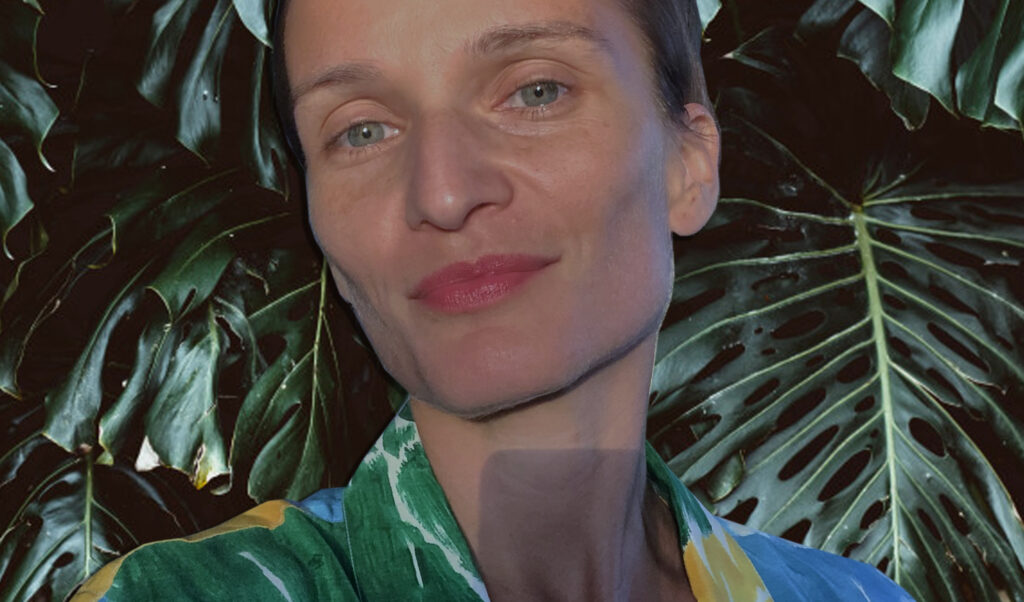
Iva Radivojevic
Iva Radivojević was born in Belgrade and spent her early years in Yugoslavia, Cyprus and NYC. She’s an artist who currently divides her time between Athens and Lesbos.
Iva’s films have screened at the New York Film Festival, Locarno Film Festival, New Directors/New Films, Rotterdam IFF, Jeonju IFF, MOMA (NYC), Thessaloniki Biennale of Contemporary Art and others. She is the recipient of the Sundance Art of Non-Fiction Fellowship, Guggenheim Fellowship, NYFA, Princess Grace Film Fellowship. Avenue of The Living, her new art book was recently published by Big Black Mountain Press. She’s a PhD candidate at Villa Arson in Nice.
Jade Sim
Kaori Oda
Kaori Oda (B. Osaka, 1987) is an artists and filmmaker whose works explore the memories of human beings.
She lived in Sarajevo for three years from 2013 and completed the Doctor of Liberal Arts in filmmaking under the supervision of Bela Tarr in 2016. Her first feature, Aragane (2015) shot in a Bosnian coal mine, had its World Premiere at Yamagata International Film Festival and received Special Mention. Her second feature, Toward A Common Tenderness (2017) a poetic film research, had its World Premiere at DOK Leipzig and TS’ONOT/Cenote (2019) shot in underwater caves in Yucatan Mex-ico, was premiered in Bright Future section at International Film Festival Rotterdam 2020. Her latest middle length film GAMA(2023) have been screened at MoMA Docfortnight, Cinéma du Réel and Festival du ciné-ma de Brive(Jury SFCC de la Critique). She received the Inaugural Nagisa Oshima Prize in 2020 and the new face award of Minister of Education Award for Fine Arts in 2021.

Luciana Decker Orozco
Luciana Decker Orozco is a bolivian filmmaker living in La Paz. MFA graduated in Cinematic Arts program at the University of Wisconsin in Milwaukee. Working in 16mm format, I’m exploring the spectral presence of places, objects, and matter, intertwining them with micro histories revealed through intimate interactions and relationships with the people who participate in my films.

Malena Szlam
MALENA SZLAM is a Chilean filmmaker based in Montréal/Tiohtià:ke/Mooniyang. Through her practice, Szlam reimagines connections between human beings and the natural world. Attentive to how geopolitics are intertwined with natural phenomena—from moon’s orbital phases to the sweeping high-plateau of central Andes—her films, installations, and photographs explore embodied perception and the affective dimensions of analogue film processes. Her recent projects focus on geology, earth sciences, and volcanology. She has collaborated with composers and scientists, including Lawrence English, Clive Oppenheimer, and Susannah Buchan to create soundscapes that emanate from deep within the earth’s crust, the ocean, and the atmosphere.
Her films have been exhibited at festivals and museums, including TIFF, MoMA, New Directors/New Films Festival, Cinéma du Réel, Edinburgh International Festival, IFFR, CPH:DOX, and Jeonju IFF. Szlam’s 2018 film ALTIPLANO was awarded 25 FPS’s Grand Prix, Melbourne International Film Festival’s Best Experimental Short Film, Curtocircuíto’s Explora, and TIFF’s Canada’s Top Ten. Group exhibitions include “femmes volcans forêts torrents” at the Musée d’art contemporain de Montréal and “The Moon: From Inner Worlds to Outer Space” at the Louisiana Museum of Modern Art in Denmark.
Marion Scemama
Max Bloching
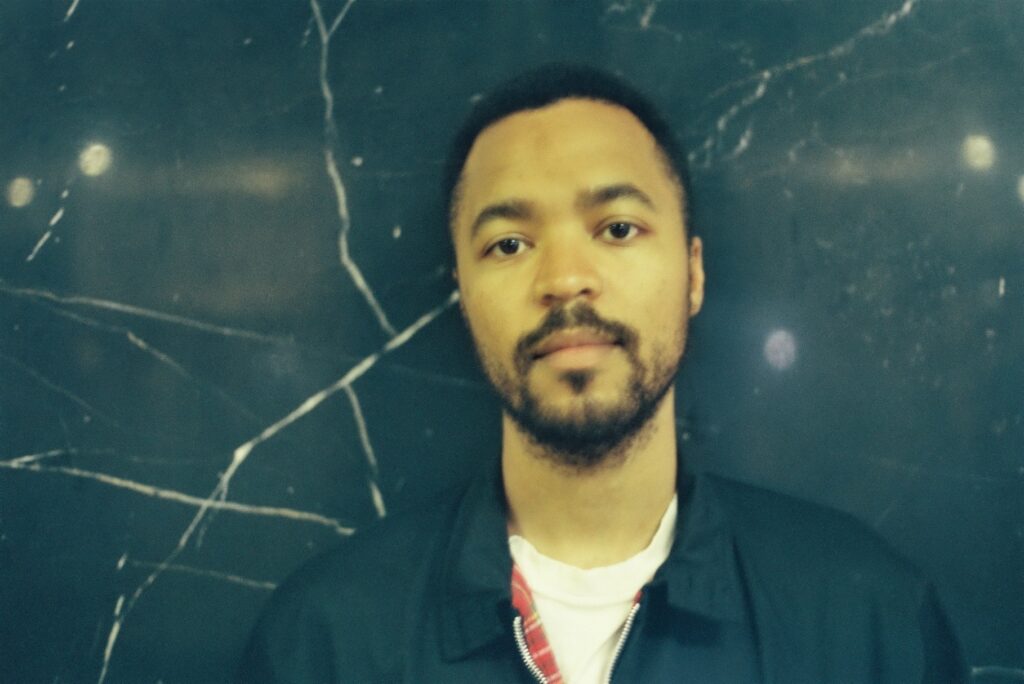
Morgan Quaintance
Morgan Quaintance is a London-based artist and writer. His practice remains open and responsive to contemporary experience and so largely eschews the rehearsal of set themes. However, interests in the human condition, the cultic milieu, counterculture, ethnography, Afro-Caribbean, East Asian and British histories, and the built environment are all mainstays.
Moustapha Alassane
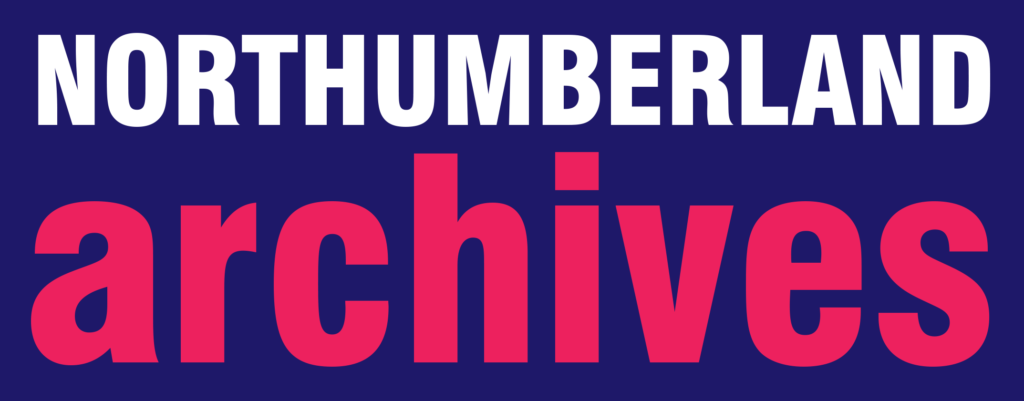
Northumberland Archives

Omar Chowdhury
Omar A. CHOWDHURY (1984, Bangladesh) is a Bengali artist and filmmaker living between Brussels and Dhaka. Originally trained in industrial relations and information systems, he now produces parafictional installations, films, and performances which animate the ambiguities and ruptures of diasporic life. Chowdhury is an immigrant from Bengal, and this is reflected in his layered installations. His work has been exhibited worldwide and he has been the recipient of international grants and commissions. He attended the Rijksakademie van Beeldende Kunsten 2018-19.
Ossama Mohammed
Ossama Mohammed, born in Lattakiya in 1954, is a Syrian filmmaker, script writer, tutor and lecturer who graduated from the Russian State Institute of Cinematography (VGIK) in 1979. His long fiction films and documentaries Silvered Water (2014), Sunduq al Dunya (2002) and Nujoom Al Nahar (1988) have all been selected for the Cannes Film Festival. His films were banned in Syria, but received critical acclaim and awards internationally. Ossama served as president of jury, tutor, and speaker in many festivals and workshops, including Cannes, Berlin, Locarno, MoMa, and DOX BOX. In 2015, he received the Prince Claus Award.

Philip Rizk
Philip Rizk is a filmmaker and writer from Cairo living in Berlin. In his films, he experiments with methods of “making the habitual strange.” In Out on the Street (2015), he uses performance. In his found footage films Mapping Lessons (2020) and Terrible Sounds & Wonderful Things (2022, work in progress), he experiments with the technique of montage. In a world that is breaking down, a question that runs throughout Rizk’s projects is: “How do we prepare ourselves for what is to come?” He is a member of the Mosireen video collective behind the archive 858.ma. His texts include the essay “2011 is not 1968: a letter to an onlooker,” and the co-authored book (with Jasmina Metwaly) On Trials: A Manual on the Theatre of Law (Archive Books, 2021). He occasionally teaches in classrooms and workshops. His work can be followed @ filfilfilm.com.
Bio published at https://cimam.org/philip-rizk/

Rajee Samarasinghe
Rajee Samarasinghe is a filmmaker born and raised amidst the decades-long civil war in Sri Lanka. He received his BFA from UC San Diego and his MFA from CalArts. Much of his work examines sociopolitical conditions in Sri Lanka through the scope of deconstructing ethnographic practices and the colonial gaze in contemporary media. His practice was born out of a desire to understand the circumstances around his childhood and often navigates the terrain of memory, migration, and impermanence.
Samarasinghe recently completed his debut feature film, Your Touch Makes Others Invisible, which explores post-civil war Sri Lanka. The project has received support from the Sundance Institute’s Documentary Film Program, Berlinale Talents’ Doc Station, Field of Vision, and True/False Film Festival’s PRISM program, and is set to have its world premiere at the International Film Festival Rotterdam. Named one of Filmmaker Magazine’s 25 New Faces of Independent Film in 2020, Samarasinghe was also awarded a MacDowell Fellowship in 2023 and a Yaddo Residency in 2024. He has had solo shows at the Museum of Modern Art (MoMA – Modern Mondays), the Berwick Film & Media Arts Festival, and the Los Angeles Filmforum (2220 Arts), among others.
Samarasinghe’s films have been exhibited at venues internationally including the Tiger Short Competition at the International Film Festival Rotterdam, New Directors/New Films by MoMA and Film at Lincoln Center, MoMA’s Doc Fortnight, BFI London Film Festival, FIDMarseille, Festival du nouveau cinéma, Oberhausen, Slamdance, SFFILM Festival, Melbourne IFF, Vancouver IFF, Guanajuato IFF, BlackStar, etc. He’s received the New Cinema Award at the Berwick Film & Media Arts Festival, the Tíos Award for Best International Film at the Ann Arbor Film Festival, the Film House Award for Visionary Filmmaking at the Athens International Film + Video Festival, and the Best Video Art & Experimental Award at the Tirana Film Festival among others.
Raoul Peck

Robina Rose
Robina Rose was born in 1951 to Danish and German parents and grew up in Notting Hill, London. After leaving school, she became a Film projectionist at the Arts Lab on Drury Lane, Covent Garden. Rose graduated from the Royal College of Art in 1977, where she did camera work on Celestino Coronado’s Hamlet starring Helen Mirren and Quentin Crisp. Rose was awarded a German Academic Exchange Service (DAAD) fellowship and moved to Berlin, where she was later invited to teach at the German Film and Television Academy (DFFB) and remained there for the rest of the 1980s. On her return from Berlin she worked for the Community Programme Unit of the BBC.

Rupert Roopnarine

Sacha Amaral
Sacha Amaral is a Brazilian screenwriter, director and teacher based in Argentina. He has a degree in stage directing from the National University of Arts (UNA), where he is currently a professor of dramaturgy.
His first feature film as a screenwriter, So long Enthusiasm (2017), had its world premiere at the Berlinale 2017, won the competition at FICCI (Carthagena) and BAFICI 2017 (Buenos Aires).
His first short film: Great are the Deserts – was part of the BAFICI 2019 short film competition and Cinélatino (Toulouse). His second short film: Billy Boy – was part of the official selection of the Cannes Film Festival 2021 and various other festivals such as: Bogoshorts, Queer Lisboa (winner), Chéries-Chéris, Sofia IFF, etc. His third short: Plurabelle – was part of the competitions of Winterthur film festival (Switzerland) and Drama film festival (Greece) where it won a special mention.

Saodat Ismailova
Saodat Ismailova is an Uzbek filmmaker and artist. Interweaving myths, rituality, and dreams, her films investigate the historically complex and layered culture of Central Asia which stand at the crossroads of material histories and migratory legacies. Departing from her personal history marked by growing up in the post-Soviet Uzbekistan, Ismailova reaches out to the collective dimension of memory. Her research encompasses the region’s ancestral knowledge and traditional spiritual practices as well as modern history of Uzbekistan which manifests through work on archival footage.
She initiated Davra research collective in Central Asia, 2021 and participated, the following year, to the Biennale of Venice and documenta fifteen. She also received The Eye Art & Film Prize, Amsterdam.

Sarah Ballard
Sarah Ballard is a filmmaker and educator based in Milwaukee, WI. Her work has screened at festivals such as CROSSROADS, Antimatter, Alchemy Film and Moving Image Festival, Light Matter Experimental Film and Media Arts Festival, and Engauge Experimental Film Festival, among others. Sarah is a recipient of the 2023 Princess Grace Award in Film and is a Lecturer in the Department of Film, Video, Animation, and New Genres at the University of Wisconsin–Milwaukee.

Stuart Marshall
Tsai Ming-liang

Ufuoma Essi
Ufuoma Essi is a filmmaker and artist from south-east London whose work spans film, moving image, photography and sound. Using the archive as an essential medium, her work revolves around Black feminist epistemology and the configuration of displaced histories, with the aim of interrogating and disrupting the silences and gaps of political and historical narratives. Recent screenings, solo and group exhibitions include South London Gallery, Public Gallery, London, Galerie Rudolfinum, Prague; Berwick Film and Media Arts Festival, Berwick; Lisson Gallery, London; Museum of Contemporary Art, Los Angeles; Maysles Documentary Center, New York; and Black Star Film Festival, Philadelphia. Upcoming solo exhibitions include Is My Living in Vain at Gasworks, London (Autumn 2022) and Te Uru Waitakere Contemporary Gallery, Auckland (2023).
https://ufuomaessi.com/

Valentin Noujaïm
Valentin Noujaïm b. France 1991, to Lebanese and Egyptian parents, graduated from the script department of La Fémis in 2020. In 2024, his short documentary “Pacific Club” was selected for the French César, while his new short fiction was selected in Tiger Shorts competition in Rotterdam. His work is crossed by the question of disappearance as a political tool, questioning the relationships of force and domination at work.

Victor Jara Collective

Wendy Clarke
Wendy Clarke (b.1944) has spent her life working prolifically with the possibilities of the medium of video, including the use of participatory video – both live and recorded – to examine interpersonal relationships. Clarke’s projects and installations have been exhibited on television, in museums, galleries, and public places.
The work has received grants from the National Endowment for the Arts, New York State Council of the Arts, Rockefeller Foundation, Corporation for Public Broadcasting, California Arts Council, Arts in Corrections, Camarillo State Hospital, Annenberg Center, Irvine Foundation, and California Youth Authority.
Clarke’s ongoing lifetime project is Love Tapes, portraits of people talking about their personal experiences with love. Clarke lives on her donkey farm in Taos, New Mexico.

Éiméar McClay
Cáit McClay and Éiméar McClay are Irish-born, collaborative artists currently based in London. Their recent work has analysed both the British Imperial project in Ireland and the period following the formation of the Irish Free State in 1922 to examine the cultural, political and economic effects of colonisation. This has involved a focus on the network of social institutions – Magdalene Laundries, mother and baby homes, etc. – run by the Catholic church and the state in Ireland across the 20th century.
Their work has been selected for many esteemed exhibitions and awards, including Circa Class of 2020; Bloomberg New Contemporaries 2020; TH4Y, GENERATORprojects; the 17th & 18th Berwick Film & Media Arts Festival New Cinema Award; the Hospitalfield Graduate Programme; the Market Gallery Studio Projects residency; the CCA Derry residency; Arts Council of Ireland Agility Award 2021 & 2022; RSA New Contemporaries 2022; the RSA Stuart Prize 2022; the 56th Karlovy Vary International Film Festival; Queer Lisboa; aemi@GAZE 2022; Bucharest International Experimental Film Festival; Festival du Nouveau Ciné; Intersección, MAV Award; the Beijing International Short Film Festival; the CCA Glasgow Creative Lab residency; Docs Ireland; Memoryhouse, Glebe House; the Creative Scotland Open Fund Award; SQIFF 2023; Other Worlds, Regional Cultural Centre, Letterkenny; zoombiblestudy, Galerie FaVU; the Visual Arts Bursary Award 2024; aemi @ Docs Ireland: Back Translation; A Mother’s Love, Prayer Room; SQIFF 2024; and Intersección 2024.

